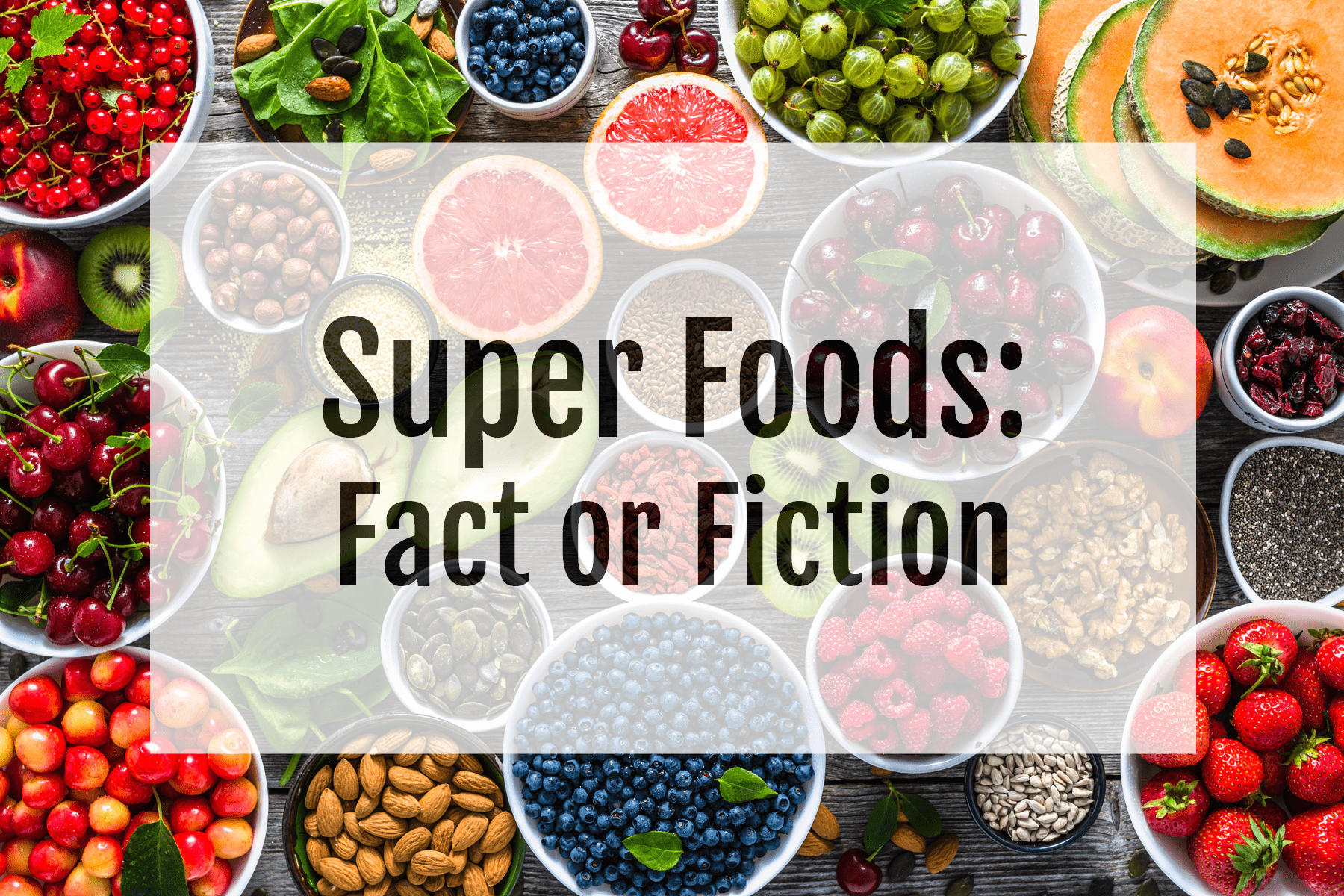
Superfoods: Fact & Fiction
The Benefits and Limitations of Superfoods
In the world of nutrition, there’s a category of foods that goes beyond basic nourishment—they are hailed as “superfoods” for their exceptional health benefits. These nutrient-packed foods offer an abundance of vitamins, minerals, and antioxidants that support overall health and provide protective effects against certain diseases.
Are superfoods just a fad?
Superfoods, often admired for their exceptional nutritional qualities, have gotten more popular in recent years. While they may be dismissed as trends, incorporating these nutrient powerhouses into your diet can boost your nutrition. Here are some of the most accessible superfoods that you can easily include into your diet
Kale
Often referred to as the “king of greens,” here are some benefits that kale offers when incorporated into your diet, whether in salads, smoothies or as a crunchy snack:
- Vitamins A, C and K,
- Fiber
- Various antioxidants
- Better eye health
- Boosted immune system
- Improved bone strength
Berries
Berries may be small, but are known for their rich antioxidant qualities, acting as an anti-inflammatory and contributing to improved brain function. Whether enjoyed fresh, frozen or blended into a morning smoothie, berries can add a burst of flavor and nutrition to your diet.
Quinoa
Quinoa, an ancient grain, has risen to superfood stardom due to its impressive protein content, containing all nine essential amino acids. This makes it an excellent plant-based protein source that is also beneficial for vegetarian and vegan diets. More than just protein, quinoa is rich in fiber, helps aid digestion and provides a feeling of fullness.
Avocado
Avocado, often referred to as nature’s butter, is loaded with heart-healthy fats. This creamy fruit is good for your heart, vision, and bones, and even supports your mental health and digestion. Using avocados in salads, spreads or even desserts can add a delicious and nutritious twist to your meals.
Here are some of the most popular avocado treats:
- Stuffed avocados
- Avocado toast
- Guacamole
- Sushi with avocado
Chia Seeds
Chia seeds may be the smallest of the superfoods, but they pack a nutritional punch. Rich in omega-3 fatty acids, fiber and antioxidants, chia seeds contribute to heart health and may aid in digestion. These versatile seeds can be added to yogurt, oatmeal or even used to make a hydrating chia seed pudding.
What are the limitations of superfoods?
While superfoods can have a myriad of benefits, it’s essential to recognize their limitations. No single food can provide all your nutrition needs. Superfoods cannot replace a balanced diet, and relying solely on them may lead to nutritional imbalances. Additionally, the term “superfood” doesn’t guarantee weight loss or prevent chronic diseases on its own. Superfoods cannot compensate for an unhealthy lifestyle, including lack of exercise or poor overall dietary choices. Moderation and diversity in food choices remain key, as no individual food can address all aspects of health independently.
Do I need to eat superfoods all the time?
Including superfoods doesn’t require a complete overhaul of what you normally eat. Start simple by introducing one or two superfoods at a time, gradually expanding as you learn how to incorporate them into your lifestyle. Remember, the key to a healthy diet is variety, so embrace the diverse world of superfoods to nourish your body from within.
When you add superfoods into your diet, you’re not just eating; you’re fueling your body with the extraordinary power of superfoods. These nutritional superheroes can contribute to a healthier, more vibrant you. So, why not make every bite count?